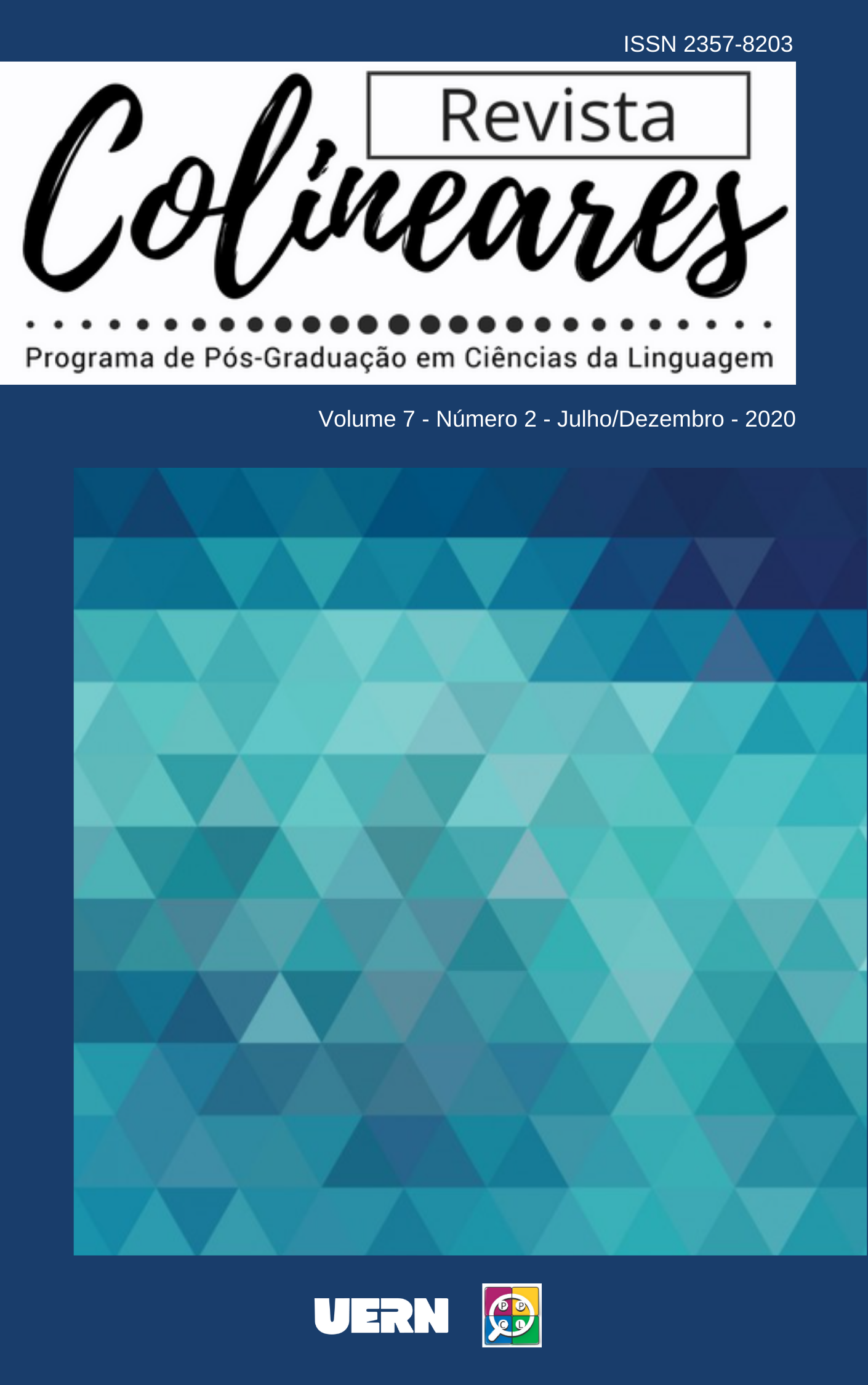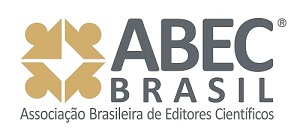O papel preditivo da memória de trabalho no processo de alfabetização em crianças participantes do projeto ACERTA
Palavras-chave:
Memória de trabalho, Aprendizagem de leitura, Desenvolvimento da leitura, Provinha BrasilResumo
Este estudo longitudinal visa a investigar a relação de predição entre a memória de trabalho (BADDELEY, 1997; DANEMAN; CARPENTER, 1980; ENGLE, 2002; BADDELEY, 2011; entre outros) e o desenvolvimento da leitura e da escrita (CABRAL, 1986; FRITH, 1985; EHRI, 2005; DEHAENE, 2009, 2015; entre outros) em participantes do projeto ACERTA (Avaliação de Crianças em Risco de Transtorno de Aprendizagem), alunos do Ensino Fundamental I, matriculados em 6 escolas municipais de Natal-RN ao longo de 2014 a 2016. Os 57 participantes foram submetidos a atividades de avaliação de leitura e escrita (atividades de cópia, ditado, leitura de palavras e pseudo palavras) e avaliações de MT (AWMA – Automated Working Memory Assessment) de 2014 a 2016. Os resultados quantitativos obtidos por regressão linear revelam que a MT não foi capaz de predizer o desenvolvimento da leitura das crianças em nenhuma das quatro medidas propostas no ano de 2016, aspecto que não se alinha à hipótese de que a MT sozinha é capaz de prever o desenvolvimento da leitura. Ao contrário do previsto, os resultados apontam a memória de curto prazo como uma possível variável preditiva do desenvolvimento dos nossos participantes nas atividades de acurácia e cópia. A discussão proposta pretende lançar luz sobre as variáveis que impactam o processo de aprendizagem da leitura, sob um ponto de vista neurocognitivo.
Downloads
Referências
BADDELEY, Alan. Human Memory: Theory and practice. Hove: Psychology Press, 1997.
BADDELEY, Alan; ANDERSON, Michael C.; EYSENCK, Michael W. Memória. Porto Alegre: Artmed, 2011. 471 p.
BOWERS, Jeffrey S. The practical and principled problems with educational neuroscience. Psychological Review, [s.l.], v. 123, n. 5, p. 600-612, 2016. American Psychological Association (APA). http://dx.doi.org/10.1037/rev0000025.
BRUER, John T. Education and the brain: a bridge too far. Educational Researcher, vol. 26, nº 8, p. 4-16, 1997.
CABRAL, Leonor Scliar. Processos psicolinguísticos da leitura e a criança. Letras de Hoje, 19 (1), p. 7-20, 1986.
CASTRO-CALDAS, A.; PETERSON, K. M.; REIS, A.; STONE-ELANDER, S.; INGVAT, M. The illiterate brain: learning to read and write during childhood inluences the functional organization of the adult brain. Brain, 121, issue 6, p.1053-1063, 1998.
DANEMAN, Meredyth; CARPENTER, Patricia A. Individual differences in working memory and Reading. Journal of Verbal Learning and Verbal Behavior, 19, p. 450-466, 1980.
DEHAENE, Stanislas. Reading in the brain. Viking: 2009.
DEHAENE, Stanislas et al. Illiterate to literate: behavioural and cerebral changes induced by reading acquisition. Nature Reviews Neuroscience, Hampshire, v. 4, n. 16, p. 234-244, 18 mar. 2015.
EHRI, Linnea C. Learning to Read Words: Theory, Findings, and Issues. Scientific Studies of Reading. New York, p. 167-188. Set. 2005.
EHRI, Linnea C. O desenvolvimento da leitura imediata de palavras: fases e estudos. In: SNOWLING, Margaret J.; HULME, Charles. A ciência da leitura. Porto Alegre: Penso, 2013. Cap. 8. p. 153-172.
ENGLE, Randall W. Working Memory Capacity as Executive Attention. Current Directions in Psychological Science, [s.l.], v. 11, n. 1, p. 19-23, fev. 2002. SAGE Publications. http://dx.doi.org/10.1111/1467-8721.00160.
FOY, J. G; MANN, V. A. Bilingual children show advantages in nonverbal auditory executive function task. International Journal of Bilingualism, 18(6), p. 717–729. https://doi.org/10.1177/1367006912472263 (2014).
FRITH, Uta. Beneath the surface of developmental dyslexia. Surface Dyslexia, v. 32, p. 301-330, 1985.
GABRIEL, Rosângela; MORAIS, José; KOLINSKY, Régine. A aprendizagem da leitura e suas implicações sobre a memória e a cognição. Ilha do Desterro A Journal in English Language, Literatures in English and Cultural Studies, [s.l.], v. 69, n. 1, p. 61-78, 26 jan. 2016. Universidade Federal de Santa Catarina (UFSC). http://dx.doi.org/10.5007/2175-8026.2016v69n1p61.
GATHERCOLE, Susan E.; BADDELEY, Alan D. The development of working memory. In: GATHERCOLE, Susan E.; BADDELEY, Alan D. Working memory and language. Hove: Lawrence Erlbaum Associates, 1993. Cap. 2. p. 25-39.
MORAIS, José. A arte de ler. São Paulo: Feu Fundação Editora da Unesp, 1996. 331 p.
MOTA, Natália; CALLIPO, Renata; LEITE, Lígia; TORRES, Ana; WEISSHEIMER, Janaina; BUNGE, Silvia; COPELLI, Mauro; RIBEIRO, Sidarta. Verbal short-term memory underlies typical development of "thought organization" measured as speech connectedness. Mind, Brain, and Education, no prelo.
NOBLE, K. G.; MCCANDLISS, B. D.; FARAH, M. J. Socioeconomic gradients predict individual differences in neurocognitive abilities. Developmental Science, 10(4), p. 464-480. doi: DOI 10.1111/j.1467-7687.2007.00600.x, 2007.
OLIVEIRA, João Batista Araujo e. Educação baseada em evidências. Coleção Iab de Seminários Internacionais, Brasília, v. 1, n. 1, p. 34-23. 2014.
SALLES, J. F. Habilidades e Dificuldades de Leitura e Escrita em Crianças de 2ª Série: Abordagem Neuropsicológica Cognitiva. 2005. 307f. Tese (Doutorado) – Instituto de Psicologia, Universidade Federal do Rio Grande do Sul, Porto Alegre, 2005.
SARSOUR, K.; SHERIDAN, M.; JUTTE, D.; NURU-JETER, A.; HINSHAW, S.; BOYCE, W. T. Family Socioeconomic Status and Child Executive Functions: The Roles of Language, Home Environment, and Single Parenthood. Journal of the International Neuropsychological Society, 17, p. 120-132, 2011.
SIGMAN, Mariano; PEÑA, Marcela; GOLDIN, Andrea P.; RIBEIRO, Sidarta. Neuroscience and education: prime time to build the bridge. Nature Neuroscience, [s.l.], v. 17, n. 4, p. 497-502, 26 mar. 2014. Springer Nature. http://dx.doi.org/10.1038/nn.3672.
VARMA, Sashank; MCCANDLISS, Bruce D.; SCHWARTZ, Daniel L. Scientific and Pragmatic Challenges for Bridging Education and Neuroscience. Educational Researcher, [s.l.], v. 37, n. 3, p. 140-152, 1 abr. 2008. American Educational Research Association (AERA). http://dx.doi.org/10.3102/0013189x08317687.
VILHENA, Douglas de Araújo ; SUCENA, Ana ; CASTRO, São Luís ; PINHEIRO, Ângela Maria Vieira. Reading Test-Sentence Comprehension: An Adapted Version of Lobrot's Lecture 3 Test for Brazilian Portuguese. Dyslexia, [s.l.], v. 22, n. 1, p.47-63, 14 jan. 2016. Wiley-Blackwell. http://dx.doi.org/10.1002/dys.1521.
WANG, Shinmin; GATHERCOLE, Susan E. Working memory deficits in children with reading difficulties: Memory span and dual task coordination. Journal of Experimental Child Psychology, [s.l.], v. 115, n. 1, p. 188-197, maio 2013. Elsevier BV. http://dx.doi.org/10.1016/j.jecp.2012.11.015.
ZORZI, Jaime Luiz. O que devemos saber a respeito da linguagem escrita e seus distúrbios: indo além da clínica. In: Andrade, C. R. F.; Marcondes, E. (Org.). Fonoaudiologia em pediatria. São Paulo, 2003, v. 1, p. 120-132 .
Downloads
Publicado
Como Citar
Edição
Seção
Licença
Copyright (c) 2020 Lígia de Souza Leite Moraes, Janaina Weissheimer

Este trabalho está licenciado sob uma licença Creative Commons Attribution-NonCommercial-ShareAlike 4.0 International License.






